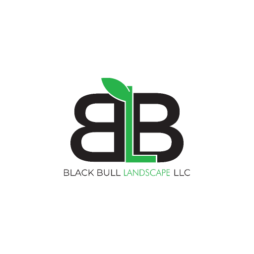Water is a precious resource, and nowhere is this more apparent than in the world of landscaping and agriculture. Efficient water management is not just a matter of environmental responsibility; it’s also vital for ensuring the health and vitality of landscapes, gardens, and crops. In the context of irrigation, efficient water management is the linchpin that enables us to maintain lush and thriving greenery while conserving this essential resource. This article delves into the critical role of efficient water management in sustainable irrigation, exploring techniques, technologies, and best practices that empower us to use water wisely and responsibly.
- The Imperative of Sustainable Irrigation:
Water scarcity is a global concern, and it’s crucial that we prioritize sustainability in all water-related practices, including irrigation. Sustainable irrigation means using water efficiently to meet the needs of plants while minimizing waste and environmental impact. Achieving this balance requires a holistic approach that considers various aspects of water management.
- The Benefits of Efficient Water Management:
Efficient water management in irrigation offers a multitude of benefits, including:
a. Water Conservation: Reducing water wastage and ensuring every drop is used for its intended purpose.
b. Cost Savings: Efficient irrigation systems lower water bills and reduce operational costs.
c. Environmental Responsibility: Minimizing the environmental impact of irrigation by conserving water resources.
d. Healthy Plant Growth: Providing the right amount of water at the right time promotes robust and healthy plant growth.
e. Reduced Soil Erosion: Preventing over-irrigation helps protect soil structure and prevents erosion.
f. Mitigating Water Stress: Efficient irrigation practices contribute to reducing water stress on natural water bodies and ecosystems.
- The Role of Modern Irrigation Systems:
Modern irrigation systems have revolutionized the way we manage water in landscaping and agriculture. These systems offer advanced features and technologies that promote efficiency and sustainability:
a. Drip Irrigation: Drip systems deliver water directly to the root zone of plants, minimizing evaporation and runoff.
b. Sprinkler Efficiency: Smart sprinkler systems use sensors and weather data to adjust watering schedules based on real-time conditions.
c. Rainwater Harvesting: Collecting and using rainwater for irrigation reduces the need for freshwater sources.
d. Soil Moisture Sensors: These devices monitor soil moisture levels and ensure plants receive water only when necessary.
- Watering Techniques for Efficiency:
Efficiency starts with the way we water our landscapes. Here are some essential techniques for sustainable irrigation:
a. Watering at the Right Time: Watering during the early morning or late evening reduces evaporation losses and allows plants to absorb moisture efficiently.
b. Avoiding Overhead Watering: Overhead watering can lead to water wastage due to evaporation and wind drift. Targeted watering at the root zone is more efficient.
c. Properly Designed Zones: Divide your landscape into irrigation zones based on plant types and water needs. This allows for customized watering schedules.
d. Mulching: Applying mulch around plants helps retain soil moisture, reducing the frequency and duration of irrigation.
e. Regular Maintenance: Inspect and maintain your irrigation system to identify leaks or clogs that could lead to water waste.
- The Role of Soil Health:
Soil health plays a significant role in efficient water management. Well-aerated and properly nourished soil can retain moisture more effectively, reducing the need for frequent irrigation. Practices like adding organic matter and regularly aerating soil contribute to healthy soil structure.
- Education and Training:
Efficient water management requires knowledge and awareness. Property owners, gardeners, and landscapers should be educated about sustainable irrigation practices, including the importance of water-efficient technologies and the responsible use of water resources.
- Government Regulations and Incentives:
Many regions have implemented regulations and incentives to encourage sustainable water management practices, including water-efficient irrigation systems and rainwater harvesting. Staying informed about local policies and taking advantage of available incentives can further promote efficient water use.
- Monitoring and Data Analysis:
Advancements in technology allow for the monitoring and analysis of water use in real-time. Data-driven insights can help property owners and professionals optimize irrigation schedules and detect issues promptly.
- Sustainable Landscaping Design:
The design of the landscape itself plays a role in efficient water management. Using drought-resistant plants, grouping plants with similar water needs, and minimizing lawn areas in favor of native and low-water plants all contribute to water-efficient landscaping.
- The Future of Sustainable Irrigation:
As technology continues to advance, the future of sustainable irrigation holds promise. Innovations such as smart irrigation controllers, advanced sensors, and predictive analytics will further enhance water efficiency. Additionally, the integration of renewable energy sources like solar power into irrigation systems can reduce energy costs and environmental impact.
Efficient water management is the cornerstone of sustainable irrigation, ensuring that we meet the needs of our landscapes while responsibly stewarding our water resources. From modern irrigation systems and watering techniques to soil health and education, multiple factors contribute to the successful implementation of efficient irrigation practices. As we navigate a world with growing water challenges, embracing sustainable irrigation becomes not just an option but a necessity. By making conscious choices and adopting the latest technologies, we can achieve thriving landscapes, reduce water waste, and contribute to a more sustainable and environmentally responsible future.


